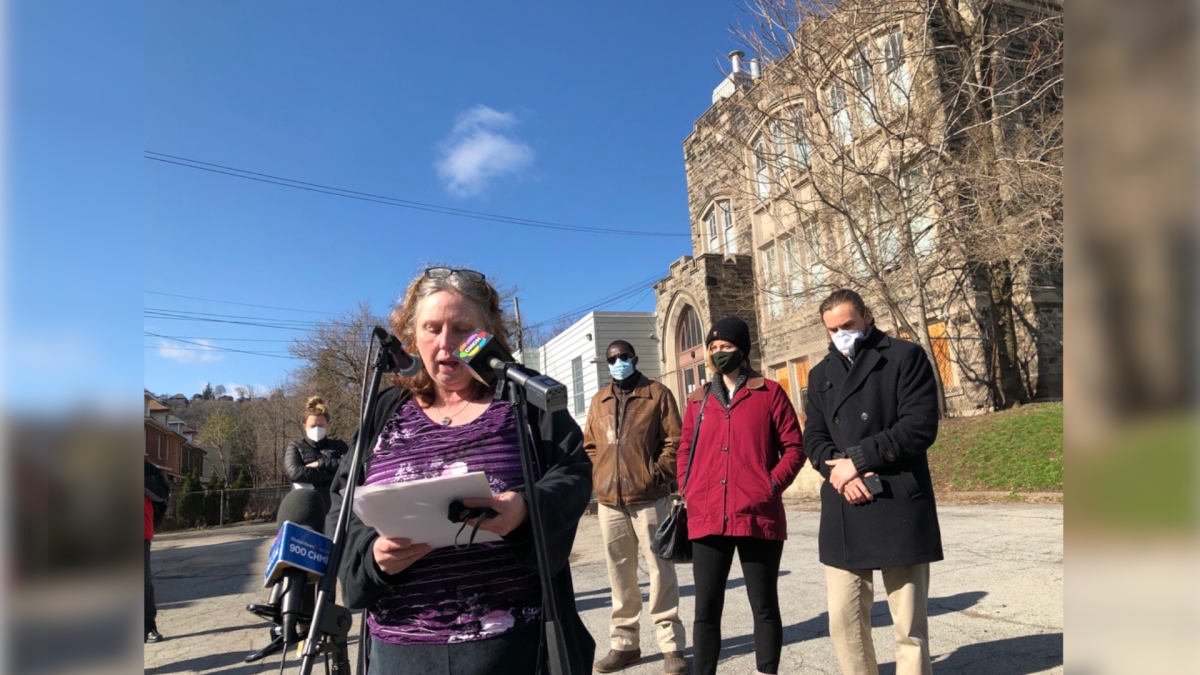The City of Hamilton insists it’s in the process of investigating and reviewing “operational details” of a city shelter under fire for alleged “dangerous” and “inhumane” conditions.

With the help of the Hamilton Encampment Support Network (HESN), Cathedral Women’s Shelter resident Brenda Hind stepped up to accuse the operation of having “dangerous conditions.”
“We are surrounded by asbestos that we breathe in all night, we sleep with bedbugs and mice crawling on our faces and heads,” Hind alleged.
“We eat within meters of overflowing sewage in our dining spaces, the ventilation system that is supposed to protect us from COVID is covered in dust and insufficient blowing air from the rooms into the hallway.”
Advocates from HESN allege “persistent submissions” from residents have made their way to the Good Shepherd Ministries with “no response or correspondence” to complaints surrounding the shelter’s conditions.
“Residents have also had their mail kept from them, which has resulted in residents not receiving correspondence from the Landlord Tenant Board, as well as other important information being withheld from residents,” HESN said in a release before Hind’s media opportunity on Wednesday.
A spokesperson with the City of Hamilton said staff are developing a formal process for addressing complaints, concerns and questions about services within the municipality’s emergency shelter system and that options are expected to go before the Emergency & Community Services Committee in the coming months.

Get weekly health news
“Housing Services, as part of its shelter system transition planning, is working to review shelter standards including service restrictions and other barriers to access, in addition to shelter infrastructure,” the city said.
Hind says she became a resident of the shelter on Main Street East, just east of Victoria Avenue South, on March 1 following a relocation from the Admiral Inn on Dundurn Street North.
Characterizing the conditions as “horrible,” she insists the facility has substandard plumbing and wiring in addition to asbestos within several ceilings and walls.
“I was told yesterday when I was at work, there were some men that came in and they claim it’s not asbestos,” Hind remarked. “I worked in the Toronto District School Board. I was trained on asbestos in schools, and that’s asbestos.”
Good Shepherd director Tessa Mcfadzean told Global News there had been workers on-site assessing issues with asbestos at the two-storey facility but said she was not made aware of any concerns.
“We know it’s not the ideal environment, however, in terms of asbestos or piping that would impact drinking water, we are not aware of any concerns that would impact or jeopardize any individual’s health and safety,” Mcfadzean said.
The director went on to say the “overflowing sewage” issue was a short-term problem that was corrected after a broken trap needed repair and that a “rigorous” rodent and pest control program does exist, monitored regularly by a third party.
Hind said she’s been monitoring temperature in her room with a thermometer and has instances where she’s seen declines of as much as 10 to 13 degrees culminating in conditions below 20 C.
“I gave that to the bylaw officer,’ Hind said. “I sent her a picture of it, and the bylaw officer told me that in a residence, if the temperature drops below 20 degrees, the landlords are required to provide space heaters until the furnace is fixed.”
Mcfadzean said the facility does have an updated HVAC system from when the facility was converted to a temporary overflow shelter in July 2020 and that thermostats are checked regularly by staff.
She suggests the larger … older environment and the potential for residents to keep windows open could exacerbate the issue.
“We monitor temperatures regularly, as people are feeling particularly cold, and can offer additional blankets to folks,” according to Mcfadzean. “But in our monitoring of the temperature, we have not seen the temperature drop to 10 degrees.”
Currently, the facility houses 58 residents and has been slowly ramping up to accommodate up to 80 to 100 beds, if required.
Initially, it had been operating as a temporary overflow men’s shelter by Good Shepherd but transitioned in March to a gender-specific shelter for women, trans-feminine, trans-masculine and non-binary adults.
The city told Global News the facility is not meant to be a sustainable situation and is working with each temporary resident to get them permanently housed.
It says it’s also addressing “complex health, mental health and addictions” among those experiencing homelessness with kits as it awaits approval for a second drug consumption and treatment services site pending an OK from the federal and provincial governments.
“In 2021, Public Health provided harm reduction supplies to 28 different community partners, including eight Good Shepherd sites,” the city said.
“In 2022, we currently provide Harm Reduction supplies to over 34 community partners.”
The HESN has been demanding to see numbers on death and overdoses occurring inside the city shelters in addition to the lifting of restrictions on WI-FI usage and access to power for temporary residents.
“If the shelter system is supposed to be transitional, why are residents restricted from … these services to aid in their search for housing?” the agency said.












Comments